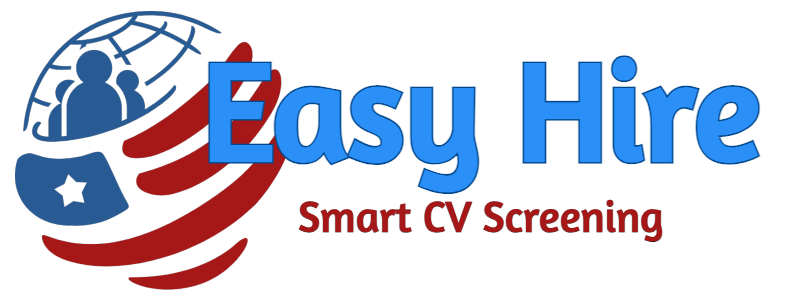The Role of Machine Learning in AI-Powered Hiring
Exploring machine learning's role in AI-powered hiring processes.
The Role of Machine Learning in AI-Powered Hiring
Artificial Intelligence (AI) is reshaping the way businesses approach hiring, and at the heart of this transformation lies machine learning (ML). From automating repetitive tasks to reducing bias and improving candidate experiences, ML is revolutionizing recruitment. But how exactly does machine learning fit into AI-powered hiring? And what benefits can it bring to your hiring process?
In this comprehensive guide, we’ll explore the role of machine learning in AI-powered hiring, its key benefits, challenges, and how you can implement it effectively in your business.
What is Machine Learning in Hiring?
Machine learning is a subset of AI that enables systems to learn from data, identify patterns, and make decisions with minimal human intervention. In hiring, ML algorithms analyze vast amounts of data—such as resumes, job descriptions, and candidate assessments—to predict the best matches for open roles.
For example, ML-powered tools can automatically screen resumes, rank candidates based on their qualifications, and even predict a candidate’s likelihood of success in a role. This not only speeds up the machine learning hiring process but also ensures more objective and data-driven decisions.
Why is Machine Learning Important in AI-Powered Hiring?
The rise of remote work, increased competition for top talent, and the need for more inclusive hiring practices have made machine learning a game-changer in recruitment. Consider these statistics:
- The AI recruitment market is projected to reach $590 billion by 2027, driven by advancements in ML and automation.
- Companies using AI-powered hiring tools report a 30% reduction in time-to-hire and a 20% increase in candidate quality.
These numbers highlight the growing importance of ML in modern recruitment strategies.
Key Benefits of Machine Learning in Hiring
1. Improved Efficiency
ML automates time-consuming tasks like resume screening, candidate sourcing, and interview scheduling, allowing recruiters to focus on strategic activities.
2. Reduced Bias
By relying on data rather than human judgment, ML helps minimize unconscious bias in hiring, promoting diversity and inclusion.
3. Enhanced Candidate Experience
ML-powered chatbots and personalized communication tools provide candidates with timely updates and feedback, improving their overall experience.
4. Data-Driven Decision-Making
ML algorithms analyze historical hiring data to identify patterns and predict which candidates are most likely to succeed, leading to better hiring outcomes.
Challenges & Misconceptions
While ML offers numerous benefits, it’s not without challenges. Here are some common misconceptions and how to address them:
Myth: Machine learning will replace human recruiters.
Fact: ML is designed to augment, not replace, human recruiters. It handles repetitive tasks, freeing up recruiters to focus on relationship-building and strategic decision-making.
Myth: ML introduces bias into the hiring process.
Fact: While ML can inherit biases from training data, it can also be designed to reduce bias by focusing on objective criteria and diverse datasets.
How to Implement Machine Learning in Your Hiring Process
Step 1: Identify Your Needs
Determine which aspects of your hiring process could benefit most from automation, such as resume screening or candidate sourcing.
Step 2: Choose the Right Tools
Evaluate AI-powered hiring platforms that align with your needs and budget. Look for tools with proven track records and positive user reviews.
Step 3: Train Your Team
Ensure your HR team understands how to use ML tools effectively and interpret their insights.
Step 4: Monitor and Optimize
Regularly review the performance of your ML tools and make adjustments as needed to improve accuracy and efficiency.
Future Trends in Machine Learning for Hiring
The future of ML in hiring looks promising, with advancements like:
- Predictive Analytics: ML will increasingly predict not just candidate success but also employee retention and career growth.
- Hyper-Personalization: AI will tailor the hiring process to individual candidates, enhancing engagement and satisfaction.
- Ethical AI: There will be a stronger focus on developing fair and transparent ML algorithms to eliminate bias and ensure ethical hiring practices.
FAQs
Q1: How does machine learning reduce bias in hiring?
A: ML algorithms focus on objective criteria, such as skills and experience, rather than subjective factors like gender or ethnicity. By analyzing diverse datasets, ML can help create more inclusive hiring practices.
Q2: Can small businesses benefit from ML-powered hiring?
A: Absolutely! Many AI hiring tools are scalable and cost-effective, making them accessible to businesses of all sizes.
Q3: Is machine learning difficult to implement?
A: While there’s a learning curve, many ML tools are user-friendly and come with support and training resources.
Conclusion
Machine learning is transforming AI-powered hiring by making it faster, fairer, and more efficient. By leveraging ML tools, businesses can streamline their recruitment processes, reduce bias, and attract top talent.
Ready to take your hiring process to the next level? Explore how machine learning in recruitment can help you integrate machine learning seamlessly. Let’s build a smarter, more inclusive hiring strategy together!
